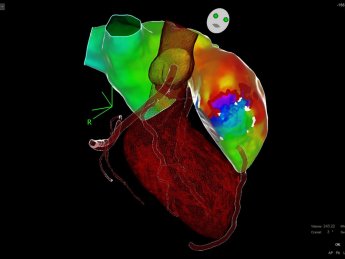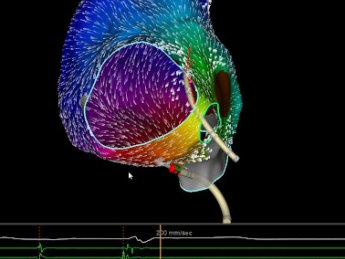Heart failure
Heart Failure: what is it?
What should I know about heart failure?
It is very important to diagnose heart failure, to perform the necessary exams, and most of all, to treat it.
When the heart muscle (myocardium) is damaged, this causes a drop in cardiac output, resulting in insufficient blood supply to the other organs. Two mechanisms can cause a decrease in cardiac output:
- The first is decreased heart muscle contraction strength. In this case, heart failure is “systolic,” caused mainly by myocardial infarction, more commonly known as heart attack.
- To understand the second mechanism, it is essential to understand that the heart’s contraction strength is largely determined by whether the heart has filled with enough blood. “Diastolic” heart failure is due primarily to a stiffening of the heart muscle, caused primarily by ageing and high blood pressure, which leads to a drop in cardiac output.
The outlook is better for patients with diastolic heart failure than for those with systolic heart failure.
What are the symptoms of heart failure?
The symptoms of heart failure are directly related to decreased cardiac output. They include:
- Shortness of breath, initially when exercising, then even when at rest This symptom is caused by a phenomenon called extravasion, when water contained in the blood leaks into the pulmonary alveoli or pleura (“pulmonary edema”).
- General fatigue
- Palpitations due either to an automatic increase in heart rate to compensate for decreased cardiac output, or to arrhythmia, which can cause or result in heart failure.
The most serious symptom is sudden death, which can occur at any time in the illness when the heart muscle weakens to below a certain threshold.
What are the risks factors?
The risk factors are rooted in the pathologies that cause heart failure, primarily heart attack and high blood pressure.
How is heart failure diagnosed?
Heart failure is diagnosed based on a review of the patient’s history and a physical exam. Once the diagnosis has been made, a paraclinical assessment is conducted to identify the heart failure’s underlying mechanism, severity and cause in order to propose appropriate treatment.
The first-line examination in the assessment is a transthoracic echocardiogram. This will provide an exact measure of the heart's contraction strength (normal “ejection fraction” should be above 60 percent).
Additional exams may be ordered subsequently, including:
- Coronary angiography
- Cardiac MRI
- Ambulatory blood pressure monitoring
- Respiratory polygraphy
- Holter monito
What treatment options are available for heart failure at the American Hospital of Paris?
The treatment pathway depends on the heart failure’s underlying mechanism.
For diastolic heart failure, the following medical treatments usually suffice:
- Begin or adjust arrhythmia treatment to obtain a balanced blood pressure profile
- Prescribe beta blockers, antihypertensives, diuretics
- Treat arrhythmia
- Adapt lifestyle and diet
For systolic heart failure, medical treatment is also necessary, but sometimes interventional or surgical procedures may be indicated:
- Coronary angioplasty or coronary bypass surgery
- Insertion of a pacemaker or defibrillator
- Heart transplant
Heart failure is the leading cause of hospitalization in France. It is increasingly prevalent and affects an estimated 12% of people over 60.
Consult our cardiologists
Learn more

